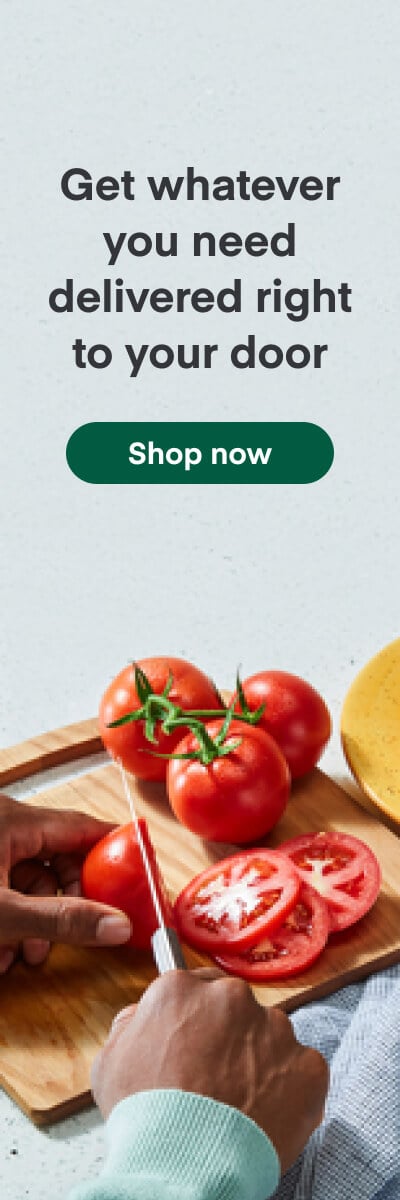Company Updates
How Instacart is Forging the Future of Food as Medicine with American Heart Association and the Rockefeller Foundation
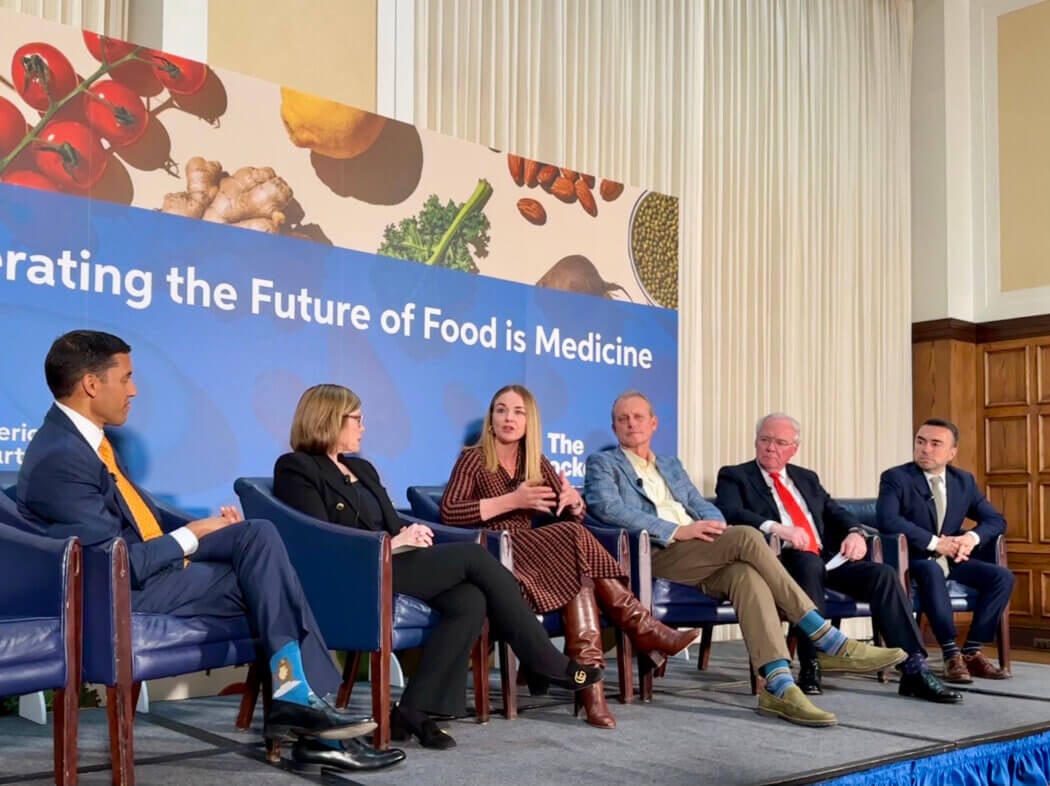
At Instacart, we believe in the power of food as medicine, because we know nutrition and health are deeply intertwined. It’s one of the reasons we launched Instacart Health, and it’s why we’re so committed to using our platform to help more people access the nutritious food they need to live healthier lives.
As a leading technology company, we also believe in the power of data and measurement. We’re relentlessly testing our ideas and our assumptions. It’s woven into our DNA.
That’s why we’re proud to announce that Instacart is supporting the American Heart Association and Rockefeller Foundation’s groundbreaking new Food is Medicine Research Initiative.
The Food is Medicine Research Initiative will conduct research examining whether nutrition intervention programs improve health outcomes, close health equity gaps, and reduce the cost of care. Ultimately, the goal is to generate the evidence necessary to make food as medicine programs a regular and reimbursable part of individuals’ health care for generations to come.
Through this collaboration — announced at an event this week in Washington, DC — Instacart is committed to supporting the work of the initiative using various Instacart Health tools and technology. We’re proud to be joining AHA and Rockefeller, as well as Kroger, America’s Health Insurance Plans (AHIP), and Kaiser Permanente to advance this critical research.
If we get this right, it can revolutionize healthcare. Imagine leaving the hospital after an operation and arriving home to find a personalized bag of groceries waiting on your doorstep to support your recovery — one that is curated by your physician, delivered from your preferred local grocery store, and covered by your insurance. Or imagine patients diagnosed with chronic health conditions and screened for food insecurity being able to shop each week from a grocery list designed specifically to help manage their condition, with the cost of the food and delivery covered by their insurer or their employer.
Soon, you won’t have to imagine. We recently teamed up with Boston’s Children’s Hospital — the nation’s leading children’s hospital — to use Instacart Health tools to build new food as medicine programs for patients. These will include, for example, virtual food pharmacies that allow doctors to prescribe nutritious foods for patients just as easily as they prescribe medications.
So the technology now exists. Piloting is underway. Now, in order to scale it to more people, we need irrefutable evidence that these solutions move the needle on health outcomes and costs — and that’s what this partnership with AHA and Rockefeller is all about.
With this collaboration, we’re also continuing to answer the White House’s Challenge to End Hunger and Build Healthy Communities and advance the National Strategy on Hunger, Nutrition and Health, which called on public and private sector leaders to enhance research on food access and nutrition programs.
Last year, Instacart, No Kid Hungry, and the University of Kentucky published a study showing online grocery can help families with low incomes save time, stretch their food budgets, reduce stress and stigma, and adopt healthier shopping habits — evidence that technology can help expand food access and encourage better nutrition. For example, the study found that individuals with low incomes who grocery shop online purchase more fruits and vegetables than in-store shoppers without increasing their total grocery bill.
And just last month, in collaboration with the White House, we announced four new studies with leading academic institutions and health systems that will examine the impact of nutrition security interventions and food-as-medicine programs on different patient groups — including patients who live in low-income and food-insecure households. Our partners on these new research projects include Mount Sinai’s Icahn School of Medicine, the Stanford Cancer Institute, the Food for Health Equity Lab at Stanford Medicine, UC San Francisco’s Helen Diller Family Comprehensive Cancer Center, the University at Buffalo, and the University of Kentucky. These projects will focus on specific patient groups including colorectal cancer survivors, individuals with gastrointestinal disease, pregnant women with diabetes, and more.
There’s a real moment of opportunity here, and we have to seize it together.
For the first time, we have the technology to build and scale nutrition programs that can reach millions of people and truly revolutionize healthcare — using food to help treat patients when they’re sick and help prevent them from getting sick in the first place. We are proud to continue working with some of the nation’s leading researchers and institutions to better understand how to maximize the potential of these programs and ensure more people can benefit from them.
We’ll be incorporating these learnings into our products, our technologies, and our partnerships — and we look forward to sharing the insights with everyone who shares our commitment to advancing food as medicine and reimagining health care.
Most Recent in Company Updates
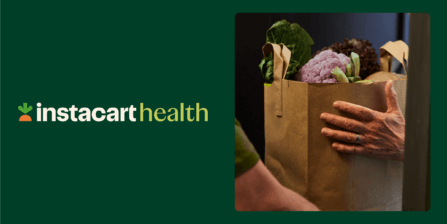
Instacart Health
Making Expert Nutrition Advice Accessible and Actionable with Instacart Health
It should be easy to understand how nutritious a food is, but we’ve all been there – studying the fine print on a package, trying to figure out how it fits into our health needs…
Dec 20, 2024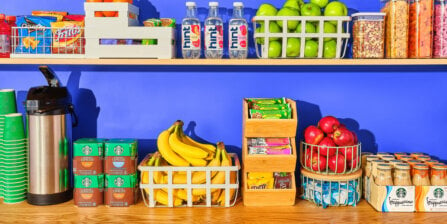
Company Updates
New Solutions for Suppliers and Merchants with Instacart Business
At Instacart Business, our mission is to empower businesses of all kinds with seamless access to the fresh ingredients, snacks and business supplies they need. And over the past few months, Instacart Business has not…
Dec 16, 2024
Company Updates
Instacart Launches ‘Stress Baster’ for Holiday Hosts Feeling the Squeeze
Free Stress Baster drop gives hosts the “utensils” to cope with holiday stress and to remind you that “Yule Be Fine, man” Ah, the holidays – a time for joy, cheer, and, if you're a…
Dec 10, 2024

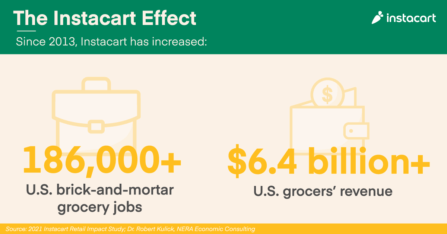 Instacart’s Impact on America’s Grocery Industry, by the Numbers
Instacart’s Impact on America’s Grocery Industry, by the Numbers 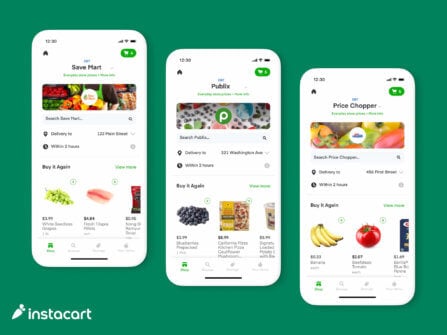 Breaking Down Barriers to Food Access with EBT SNAP Expansion
Breaking Down Barriers to Food Access with EBT SNAP Expansion  Beyond the Cart: A Year of Essential Stories
Beyond the Cart: A Year of Essential Stories 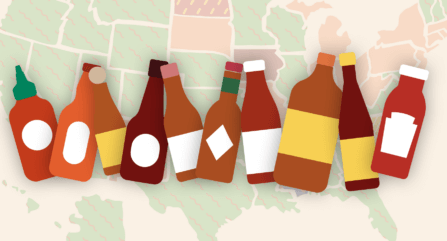 A Hot Take on America’s Favorite Hot Sauces 🌶
A Hot Take on America’s Favorite Hot Sauces 🌶  JuJu Smith-Schuster: What’s in my Cart?
JuJu Smith-Schuster: What’s in my Cart?  Introducing the First-Ever Instacart Emerging Brand List
Introducing the First-Ever Instacart Emerging Brand List 